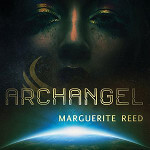
 The SFFaudio Podcast #496 – Jesse, Scott Danielson, and Paul Weimer talk about new books, audiobooks, and audio drama.
The SFFaudio Podcast #496 – Jesse, Scott Danielson, and Paul Weimer talk about new books, audiobooks, and audio drama.
Talked about on today’s show:
a full size show, paperbooks, audiobooks newly released, stacking on desks and shelves, books a week, piling up, send me stuff season, a tonne of books being published, everybody needs publicity, organized by publisher, St. Martin’s Press, advanced readers copy, Deep Silence by Jonathan Maberry, Joe Ledger, Julie Davis, mail it to Julie, Julie’s reviews on Goodreads, a prolific reviewer, Maze Master by Kathleen O’Neal Gear, techno-thriller, retro virus, Coldfall Wood by Steven Saville, Henre The Hunter, William Shakespeare, haunting the forest outside of Windsor Castle, how to organize, piles, too many to read, Shaun Duke, Tor.com, three novellas, Vigilance by Robert Jackson Bennett, The Running Man (by Stephen King), The Haunting of Tram Car 015 by P. Djèlí Clark, The Black God’s Drums, The Test by Sylvain Neuvel, The Dream-Quest of Vellitt Boe by Kij Johnson, Irene Gallo, H.P. Lovecraft, The Dreamquest Of Unknown Kadath, The Twilight Pariah by Jeffrey Ford, a novella, are they listening to my podcast, William Morrow, Ahab’s Return, Or The Last Voyage, the premise of Moby-Dick, The Coode Street Podcast, the best of the year so-far, All Systems Red by Martha Wells, Harper Voyager, Dragonshadow by Elle Katharine White, A Study In Honor by Claire O’Dell, near future SF, civil war, a great cover, 11 hours, a mystery, world-building, a series, Temper by Nicky Drayden, similar to South Africa, twins, 14 hours, evocative of the works of…, annoying Jesse, everything in the kitchen sink, Astounding: John W. Campbell, Isaac Asimov, Robert A. Heinlein, L. Ron Hubbard, And The Golden Age of Science Fiction by Alec Nevala-Lee, 1,300 newly released audiobooks, when SFFaudio Podcast started, drowning in books both good and bad, moving product, no way to keep up, a podcast listener, Tantor Audio, Blackstone Audio, The Best Of Subterranean edited by William Shaffer, Ursula K. Le Guin’s collected short fiction, The Way Of The Shield by Marshall Ryan Maresca, all-paladin-like, The Silver Scar by Betsy Dornbusch, Boulder, Colorado, post-apocalyptic Earth, The Tomorrow Factory, Pinnacle City, The Rising Moon, The Freeze-Frame Revolution by Peter Watts, The Things, The Island, Blindsight, Rogue Moon by Algis Budrys, Who?, totally do-able, Planet Stories, March 1953 by William Tenn, Gardner F. Fox, Robert Moore Williams, Ross Rocklynne, Radio Archives, the height of the science fiction magazine era, the plateau, a great way to spend six hours, Archangel by William Gibson and Michael St. John Smith, audio drama, time travel, WWII, alternate future and past, Welcome to Dystopia: 45 Visions of What Lies Ahead edited by Gordon Van Gelder, stories by K.G. Anderson, Richard Bowes, Elizabeth Bourne, Scott Bradfield, J.S. Breukelaar, Jennifer Marie Brissett, Becca Caccavo, Don D’Ammassa, Stephanie Feldman, Eric James Fullilove, Ron Goulart, Eileen Gunn, Leslie Howle, Matthew Hughes, Janis Ian, Michael Kandel, Thomas Kaufsek, Paul La Farge, Yoon Ha Lee, Michael Libling, Heather Lindsley, Lisa Mason, Barry N. Malzberg, David Marusek, Mary Anne Mohanraj, James Morrow, Ruth Nestvold, Deji Bryce Olukotun, Marguerite Reed, Robert Reed, Madeleine E. Robins, Jay Russell, Geoff Ryman, James Sallis, J.M. Sidorova, Brian Francis Slattery, Harry Turtledove, Deepak Unnikrishnan, TS Vale, Leo Vladimirsky, Ray Vukcevich, Ted White, Paul Witcover, N. Lee Wood, Jane Yolen, dystopia, A Choice Of Gods by Clifford D. Simak, a lot of Simak from Audible Studios, the central intelligence of the universe, Salvation by Peter F. Hamilton, John Lee, Tantor Audio, Tamahome, how do you write that much?, Neal Stephenson, this thing called the internet, when does he sleep?, children’s fantasy novels, in 25 years he’s written 15 (BIG) books, short stories too, a prodigious output, The HPLHS adaptations of H.P. Lovecraft stories are on Audible, CDs vs. props, separate props, the deluxe editions, printed ephemera, Tantor.com, Icehenge by Kim Stanley Robinson, the full KSR experience, The Invincible by Stanisław Lem, everybody needs a little Lem, The Cyberiad, Dichronauts by Greg Egan, Dragon’s Egg by Robert L. Forward, Maissa Bessada, with a parasite, changing the laws of physics, not meant for audio, a very Greg Egan trick, review like mad, podcasts, Wooden Overcoats, a comedy on a Channel Island, rival funeral homes, narrated by a mouse, quite delightful, The Monster Hunters, a Marvel Comics audio drama, Wolverine: The Long Hunt, full of ads, is it worth it? tell Jesse, sort of X-Files-y, Serial Box podcast, worth a listen for horror fans,
Posted by Jesse Willis

 Archangel (Book One of the Chronicles of Ubastis)
Archangel (Book One of the Chronicles of Ubastis)